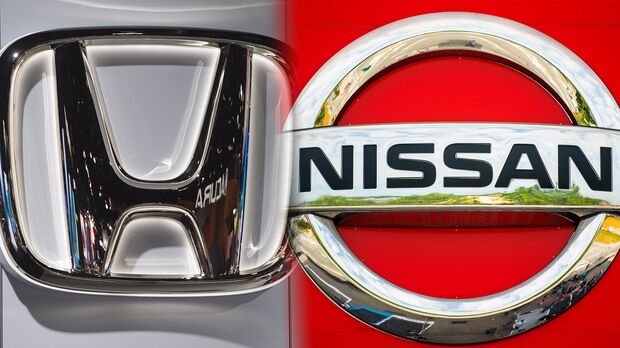Honda Motor Co. and Nissan Motor Co. will consider launching a manufacturing partnership in which they will build vehicles at each other’s plants, sources close to the matter said Saturday.
Japan’s second- and third-largest car manufacturers are expected to announce Monday that they are beginning talks on a merger that would create the world’s third-biggest automaker group by volume, the sources said.
Mitsubishi Motors Corp. is also considering joining the merger talks in early 2025, after the two bigger companies start negotiations to form a business alliance, the sources said.
The two larger automakers, meanwhile, will study the possibility of producing hybrid vehicles for sale in North America where there is solid demand for gasoline-electric vehicles.
The two carmakers are also exploring the possibility of establishing a holding company amid fierce global competition in electric vehicles dominated by overseas rivals, the sources said.
The firms are prepared to work together in a wide range of areas, but Honda is asking Nissan to achieve a V-shaped recovery in its performance as a condition for the merger, while bolstering cooperation in the EV field, the sources said.
In another development, Taiwan’s electronics giant Foxconn is in talks with Renault SA, the largest shareholder of Nissan, to acquire the French car manufacturer’s stake in the Japanese automaker, the sources said.
Foxconn’s move may affect the course of the talks between Honda and Nissan, some analysts said. The electronics maker based in Taiwan, formally known as Hon Hai Precision Industry Co., has been aiming to strengthen its EV business.
Honda and Nissan have positioned improving production efficiency as an urgent issue, the sources said. Given that Honda only has engine and motorcycle plants in Europe, the carmaker is likely to utilize Nissan’s four-wheeled vehicle production facility in Britain.
Nissan now predicts an operating profit of 150 billion yen ($958.7 million) for fiscal 2024, down more than 70 percent from the previous forecast in July.
Demand for EVs, one of the key segments for Nissan, has been stagnating due in part to a lack of charging stations in the world’s biggest economy, the analysts said.




